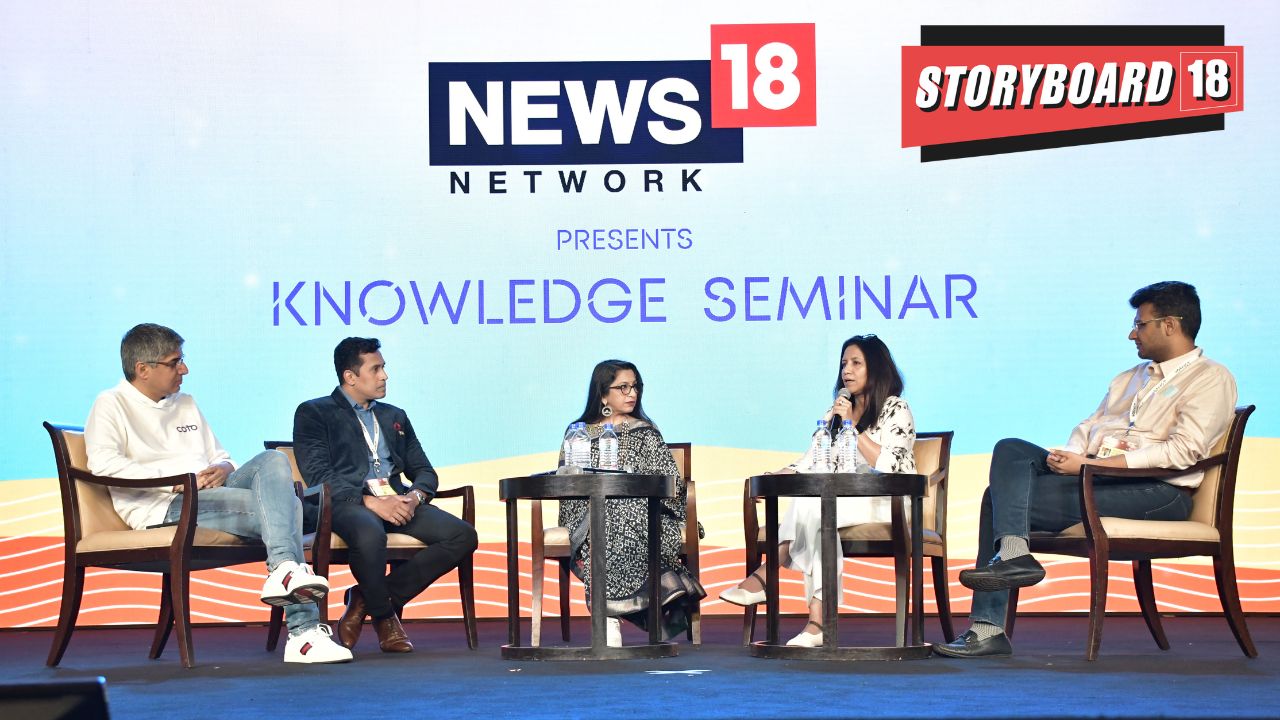Day 3 of Goafest kicked off with a panel discussion on ‘IAA – Voice of change on gender bias,’ presented by Network18 and moderated by Megha Tata, chief executive officer of Cosmos Maya. The discussion included Anupriya Acharya, CEO of Publicis Groupe, South Asia; Kailashnath Adhikari, business head of Sri Adhikari Brothers Network; Tarun Katial, founder and CEO of Coto; and Anand Narsimhan, managing editor of special projects and senior anchor at CNN-News18.
Tata stated, “Advertising plays a significant role in shaping and reinforcing gender norms, and we have seen how it impacts our society at large.”
As the discussion began, Acharya was asked about how the advertising industry is evolving and what it is doing to address the stereotypical gender representation of women. She mentioned that progress has been made, citing examples like Ariel’s ‘Share the Load’ campaign, ads from Whisper, Airtel, Tanishq, and others.
Acharya shared an incident from when she was a moderator for a panel discussion at the Effies jury in Singapore. They discussed an Indian women empowerment ad, which highlighted the ongoing discussions and awareness around the topic. However, despite the efforts, the data shows that significant change is still needed.
Katial addressed the importance of portraying women in progressive ways across different media platforms. He mentioned the example of the TV show ‘Jassi Jaisi Koi Nahi,’ where the character Jassi, an ugly duckling working in a fashion house, became relatable to many viewers. However, such representations of women are not commonly seen on television or other platforms.
He also highlighted the stereotyping that occurs on platforms like TikTok and Instagram, where women are often limited to dancing or comedy content. Important conversations are often overlooked or not considered cool, even in the digital age. Additionally, there is a lack of women leaders in tech companies.
Adhikari focused on the need to address the objectification of women in media and content. He mentioned that 37 percent of women globally do not have access to the internet, which is a cause for concern. He emphasized the importance of empowering women with digital skills and enabling their participation in meaningful conversations across media, content, and advertising. Approaching this issue as a holistic growth is crucial to combating gender bias.
Towards the end of the discussion, Narasimhan was asked about his personal experience regarding the misrepresentation of women in the media. He emphasized that merit, rather than gender, should drive opportunities in any field. He also raised questions about the underrepresentation of women in fields like civil engineering, mechanical engineering, and IT. He mentioned the success of the movie ‘Kerala Story,’ which was female-oriented and achieved great commercial success, highlighting the need to champion such achievements.
The panel unanimously agreed that merit should be the primary factor in decision-making and that change should start at home, through the way we educate and treat our children. They emphasized the importance of creating a future where everyone’s potential is limitless, regardless of gender.
